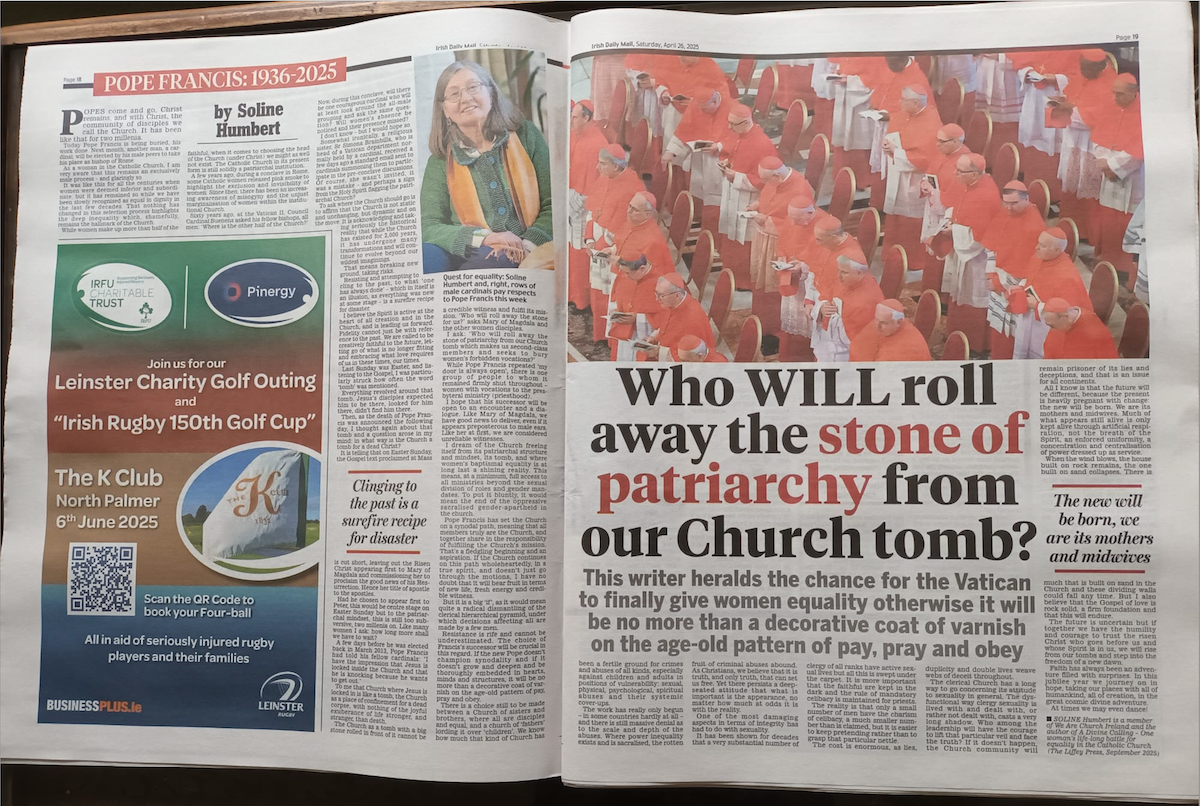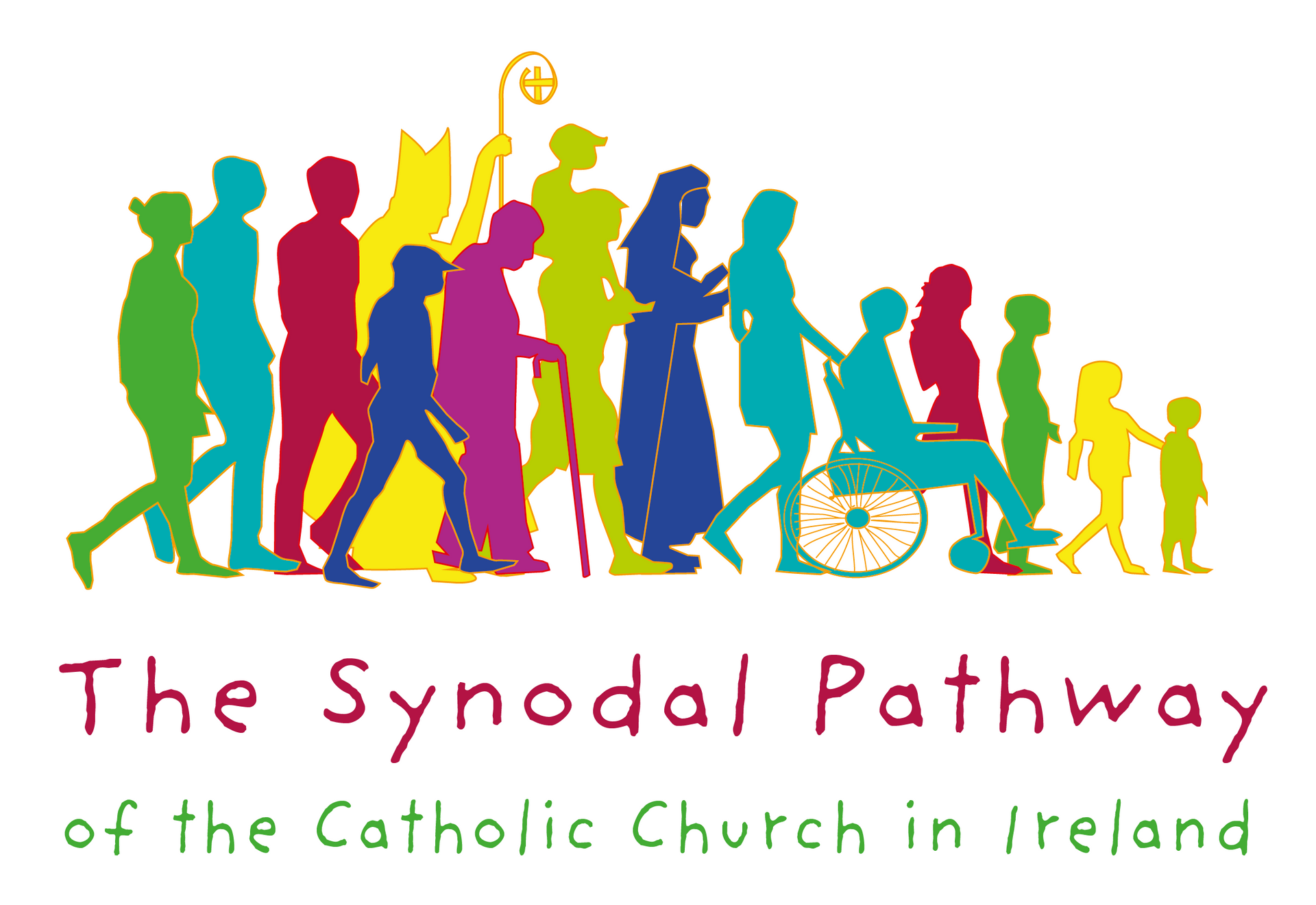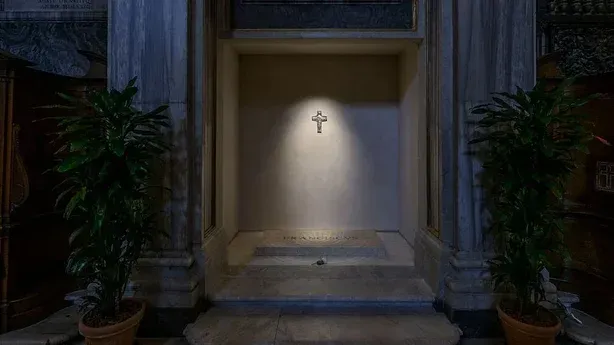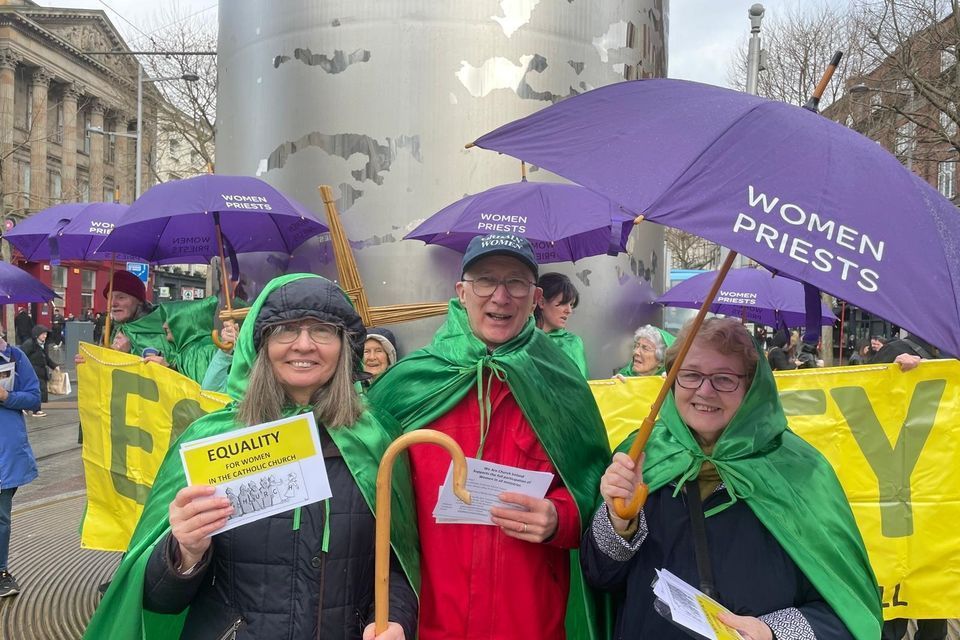"The Curia is the Pope" - book launch
RG319931 • 6 January 2021
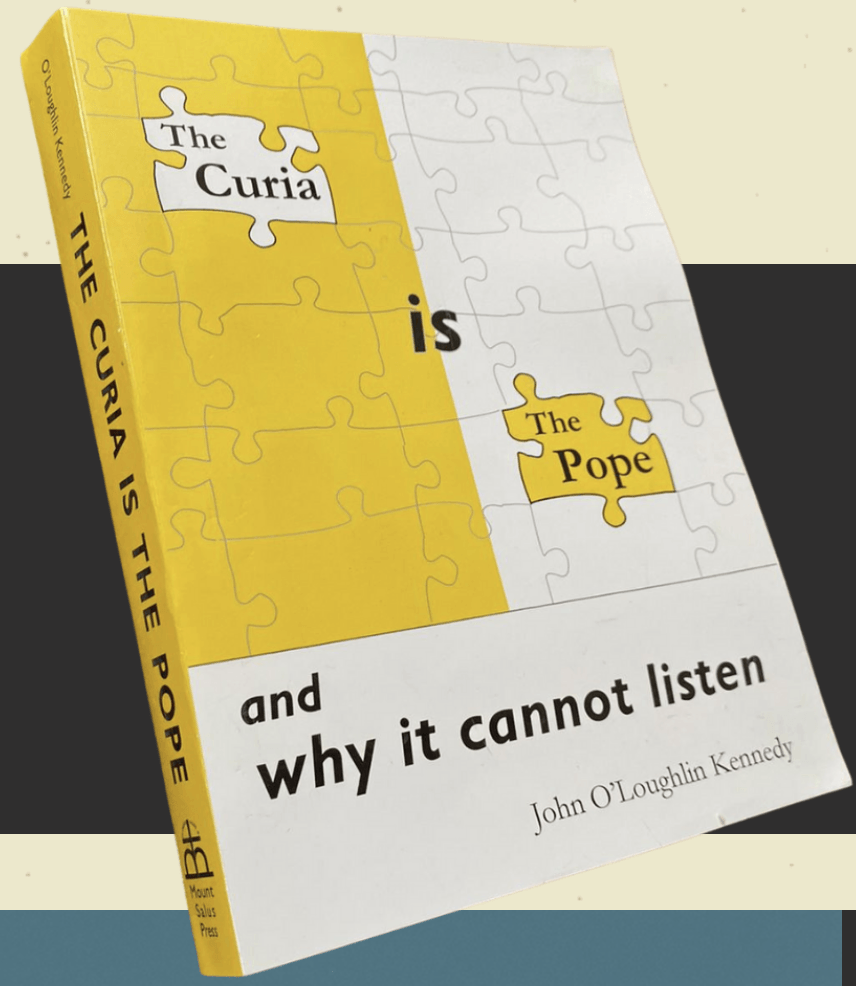
Launch of John O'Loughlin Kennedy's book:
THE CURIA IS THE POPE
Because of the timing of the launch of this book, I have been reading THE CURIA IS THE POPE while surrounded by nativity scenes on Christmas cards and in our cribs. As I gazed upon Mary, Joseph and the infant Jesus, and contemplated Mary's birthing of her son, an idea planted itself in my mind, which I could not dislodge: Imagine if Mary of Nazareth had known as she laboured to give birth that it would eventually give rise to a whole Roman Curia, a great big, clerical bureaucracy? For the past few weeks, I have been hosting both the Nativity and the Roman Curia in my mind, and it has been a very strange cohabitation.
The full title of the book is THE CURIA IS THE POPE AND WHY IT CANNOT LISTEN...
I was struck by this part of the title: “It cannot listen….”
If the Curia cannot listen, then it is truly impotent, unable to give life, in contrast with Mary who conceived the Word through listening.
When John O'Loughlin Kennedy asked me to contribute to the launch, I objected that I was the wrong person, as the Roman Curia and I have nothing in common. The Curia is at the centre of institutional power and I am on the outer peripheries. The limited experience I have had with curia members has been extremely painful. The last time I was in Rome, 20 years ago, I came back suffering from an acute case of Vaticanitis...
However, on being told that all I had to do was comment on chapter 12, on the Priestly ordination of women, I agreed...But I did read the whole book, all 300 pages, and I do agree with Robert Mickens of La Croix International that it is a tour de force. Certainly, a labour of love ...even if the Roman Curia is unlikely to agree!
One of the causes for the curia's inability to listen is the infallibility or rather pseudo infallibility with which it cloaks itself as part of the papacy. O’Loughlin Kennedy writes that'' the current teaching on the issue of women 's ordination as set out in the apostolic letter of John Paul the Second, Ordinatio Sacerdatolis, in 1994 is probably the most clearly documented example of pseudo infallibility to date.'‘(p144). It is also an example of remarkably weak scholarship.
It seems however to be shaping up as a possible example of how the sensus fidelium can discern prejudice and error and reject both, although that is a process that normally takes a long time.''
With wonderful synchronicity the president of the German Episcopal conference, bishop Georg Bätzing has recently declared that he found it increasingly difficult to justify the ban on ordaining women deacons and priests. ''I am aware that the arguments again women's ordination are becoming less and less convincing and that there are well developed arguments in theology in favour of opening up the sacramental ministry to women as well.''
One could reasonably claim that these arguments were NEVER convincing. They certainly never were with many of us, including O'Loughlin Kennedy.
In this chapter he has done an excellent work in exposing in detail the weak arguments of the apostolic letter, the shoddy scholarship and yes, the deliberately misleading assertions.
He also makes clear the extraordinary brazen bullying process which went on to force through this clearly deficient teaching. It is worth recounting, because again it exemplifies how the Curia has been usurping power for decades, as the book shows: ’’The Presidents of all the Bishops conferences of the world were summoned to Rome early in 1994 without being told the reason. There, they were presented with the Apostolic Letter, Ordinatio Sacerdatolis, ready for publication. It contained a statement to the effect that it had been prepared 'having heard the views of the bishops', which was untrue.... The bishops had not been consulted or even informed that a review of the issue had been undertaken .... The presidents of the bishops' conferences refused to approve it on behalf of their bishops...” In any case they did not have the authority to do so; ''the letter also included the term ''irreformable’ ‘which in Rome -speak implies infallibility.
The Curia then promised to make 2 deletions from the letter:
1 the mendacious phrase about hearing the views of the bishops of the world,
2 the word 'irreformable' with its implication of infallibility.
However, a year later the Congregation for the Doctrine of the Faith issued a declaration that the doctrine was infallible. O’Loughlin Kennedy writes:
''Not one bishop demurred ...The loyalty oath held. Only a retired bishop felt justified in telling what happened, and that more than ten years later.''
That bishop was Geoffrey Robinson, auxiliary in Sydney diocese, Australia, in his book “Confronting Power and Sex in the Catholic church”. Bishop Robinson, who died 2 months ago, was subsequently persona non grata in many dioceses of the world. Secrecy is the curial virtue and whistle blowers are traitors. The curia uses the loyalty oath to effectively muzzle bishops and clergy.
Reading this passage in THE CURIA IS THE POPE brought me back to my meeting in Armagh in March 1994 with cardinal Daly, head of the Irish church. Near the end of a difficult 2 hour discussion, he asked me a strange question: ''What will you do if the pope defines infallibly that women cannot be ordained?'' This to me seemed to come completely out of the blue and was purely hypothetical.
I dismissed it from my mind until 2 months later when Ordinatio Sacerdatolis was promulgated in May 1994. I realised then that Cardinal Daly knew that this bombshell was coming. As O'Loughlin Kennedy writes, a classic case of ''pseudo infallibility '', which has had to be enforced ever since through coercion, threats and silencing. Tony Flannery knows all about it , as did Eamonn Mc Carthy a priest of Dublin diocese, and the late theologian Sean Fagan, among many others.
The Roman Curia couldn't listen to the bishops...how could it have listened to the baptized church members ...and especially to the women who were directly concerned by this teaching ?
Throughout the book we are given examples of this systemic failure to listen to the Sensus fidelium, and therefore to the Holy Spirit, with all the damaging consequences for the credibility and mission of the church in faithfulness to Christ.
As I finished the book, I reflected that title could equally have been the CURIA IS THE POPE AND WHY IT CANNOT TELL THE TRUTH.
Examples abound of misleading statements, half truths, and plain lies. I was shocked when in Rome in 2001 I heard Cardinal Schotte, Secretary General of the synod of bishops, make a statement about a petition at a press conference which I knew was a lie. I remember thinking, if they lie about this, what about all the other matters?...And indeed as this book and the experience of covering up the clerical sexual crimes against children have shown, truthfulness is not a curial virtue.
Today is the feast of the Epiphany. What did the Magi find? Divine Love whose power was manifest in tender vulnerability. Is it too far fetched to say that the Roman Curia has had more in common with the court of King Herod in its corruption and worship of power, its fear of being dethroned, than with Mary and her Son, her flesh and blood, Emmanuel - God with us - Our flesh and blood?
The radical reform of the Curia and the church cannot be left to Pope Francis alone, nor to the bishops. It is the responsibility of the whole priestly people of God under the impulse of the Holy Spirit to remove the stranglehold the curia has on the body of Christ. THE CURIA IS THE POPE is an important contribution to this work and I am grateful to John O'Loughlin Kennedy for his labours.
Soline Humbert
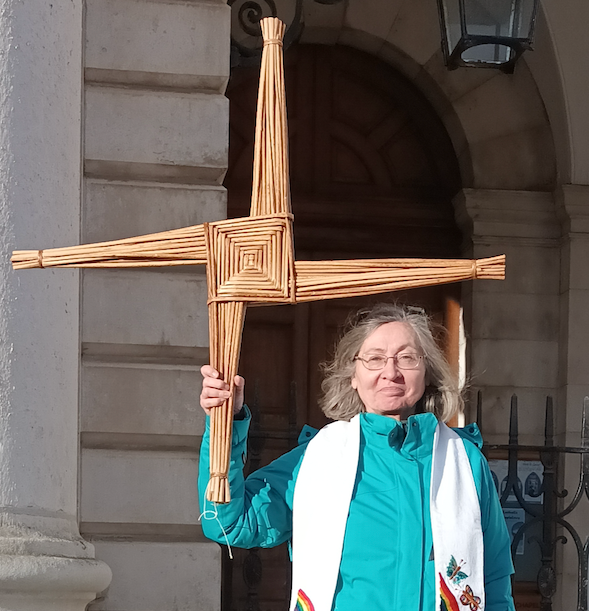
A reflection by Soline Humbert for the Women’s Ordination Conference Retreat “Hidden Springs, Holy Radiance” 9 February 2025 [ see recording on YouTube https://www.youtube.com/watch?v=szP5h1kzEsU ] We have been gathering over the past three days in the presence of Brigid of Kildare, and I am sure she has brought gifts to each one, for my experience is that she is attentive to our needs and very generous with her help. At this stage I just want to share some of my own life journey with Brigid. I first encountered her in 1969 when I came from France to Ireland as a child on holidays to learn English. I went to a small Irish town called Tullow. As it happens it was in Tullow that on the first of February 1807 the order of nuns of St Brigid which had been dissolved at the Reformation, had been refounded by a far-sighted bishop. Symbolically an oak sapling had been brought from Kildare Town, from the church of the oak, to Tullow and planted in the grounds of the Brigidine convent where I took English classes. It was by then a majestic oak tree. It still stands to this day. Coincidentally and somewhat ironically, 1969 was also the year that Pope Paul the 6th removed St Brigid, along with 193 other saints, from the Universal Roman Calendar of saints. The reason being that there wasn’t enough evidence for her existence! That despite the fact she was the most mentioned Irish person in the writings of several centuries after her death... What was true was that her flame had been somehow extinguished, and her importance diminished in a deeply clericalised and patriarchal church as Ireland was at the time. She was in the shadow of St Patrick and very much the secondary patron Saint, reflecting the secondary position of women in general. But change was slowly happening. Having discovered in myself a vocation to the priesthood I eventually co- founded a group for women’s ordination and launched a petition to open all ministries to women in February 1993. At the very same time, which I consider providential, the flame of St Brigid was rekindled by the Brigidine sisters in Kildare Town. Women were stirring after a very long wintertime in the church and in society and becoming more fiery. Brigid with her torch was blazing a way for equality. It is then, and only then, that I came across the story of her ordination as a bishop and I remember my astonishment for I had never read anything like that before, or since, for that matter. Of course, while this fact was mentioned in many of the lives of Brigid going back to the first millennium it had been quietly left out of the pious descriptions of her life which were fed to the people. The way the story is recounted makes it clear that her ordination was considered to be very much the doing of the Holy Spirit. Objections about her gender were voiced but powerless to negate what God had done. It reminds me very much of the passage in the Acts of the Apostles when St Peter is amazed to discover that the Holy Spirit has descended on Cornelius, a gentile, and which leads him to conclude that “God has no favourites”. Brigid’s episcopal ordination at the hands of a bishop overcome by the Spirit is also a powerful affirmation that when it comes to ordination God has no favourite gender. Her ordination’s divine origin shows that Brigid was a bishop because God ordained it, and her. A very subversive truth our Church has yet to learn... As we campaigned for women’s ordination we made sure that this episode from Brigid’s life was brought into the open, again and again, despite clerical efforts to dismiss this dangerous historical memory as pure legend and keep it buried. Interestingly when the Anglican Church of Ireland, (Episcopalian) ordained their first woman bishop in 2013 it was to the diocese of Meath and Kildare! A very symbolic act. I have often gone to St Brigid’s Well in Kildare, a little oasis of peace, to spend some time with Brigid and re-source myself by the gently flowing water. After the First Women’s Ordination Worldwide Dublin international Conference in 2001 I went there again on the anniversary of my baptism and I hung my purple stole on a tree overlooking the well. I had worn that stole for many years as a sign of waiting. From now on I would wear stoles of other colours. And a few years ago, I found myself back in Tullow, as a guest speaker at the invitation of the Brigidine sisters for an international celebration. It was very moving to be able to speak of my calling to priesthood in the place where the order of St Brigid had been revived and where I had first come as a child half a century beforehand! That day I sensed very much the presence of Brigid the bishop and I was filled with joy and gratitude. In some ways we can say St Brigid has risen up and is leading the way for women to rise up. Although a woman in what was very much a man’s world and a man’s church, Brigid exudes a remarkable confidence in her being, in her words and in her actions. No doubt that confidence was rooted in a deeply contemplative life nurtured by prayer. “From the moment I first knew God, I have never let him out of my mind, and I never shall”. She embodies the authority which stems from being filled by the Spirit and a leadership at the service of peace, justice, hospitality to the strangers, charity to the poor and marginalised, reconciliation, healing and harmony with creation and care of the earth. The two Scripture readings we have just heard are very fitting for she was renowned for her practical care and generosity to those in need or suffering. Like Christ, she went around doing good. I must not be the only one who saw and heard in Episcopalian bishop Mariann Budde’s recent words the spirit of St Brigid as she used her God- given authority to plead for mercy for the people in vulnerable situations in the face of unbounded cruelty. Brigid is a bold, dynamic presence. She is said to be a woman of the threshold, of liminal places, and she is a sure guide for our times when we also are in transition on the threshold of a new church and a new world too. She calls to us to step boldly forward with our torches burning brightly, bringing the light and warmth of God’s Love to a world gone cold in the grip of darkness and despair. Her life reminds us that with “God nothing is impossible” and to expect miracles. I shall end on a light- hearted note: I went on pilgrimage to St Brigid’s Well and Solas Bhride in Kildare last Tuesday to prepare for this retreat. On the way back from the well and driving through the wide expanse of the Curragh where thousands of sheep graze freely I started seeing a multitude of rainbows. It reminded me of one of the many whimsical stories about Brigid: Caught in a rainstorm, she hangs her mantle on a sunbeam to dry. Dripping from its edges, colourful rainbows form in the water droplets, and her mantle is ‘bright’ with colour. Lady, from winter’s dark, Star of Imbolc, rise! Dance across our threshold: Scattering warm laughter Seeds of hospitality, Tolerance, forgiveness! Return again to the folk: You the Spring we yearn for! (Tom Hamill)

Women are a problem for the Catholic Church, an institution with ingrained misogyny - Soline Humbert
Papal plámás is no substitute for an end to discrimination against women


